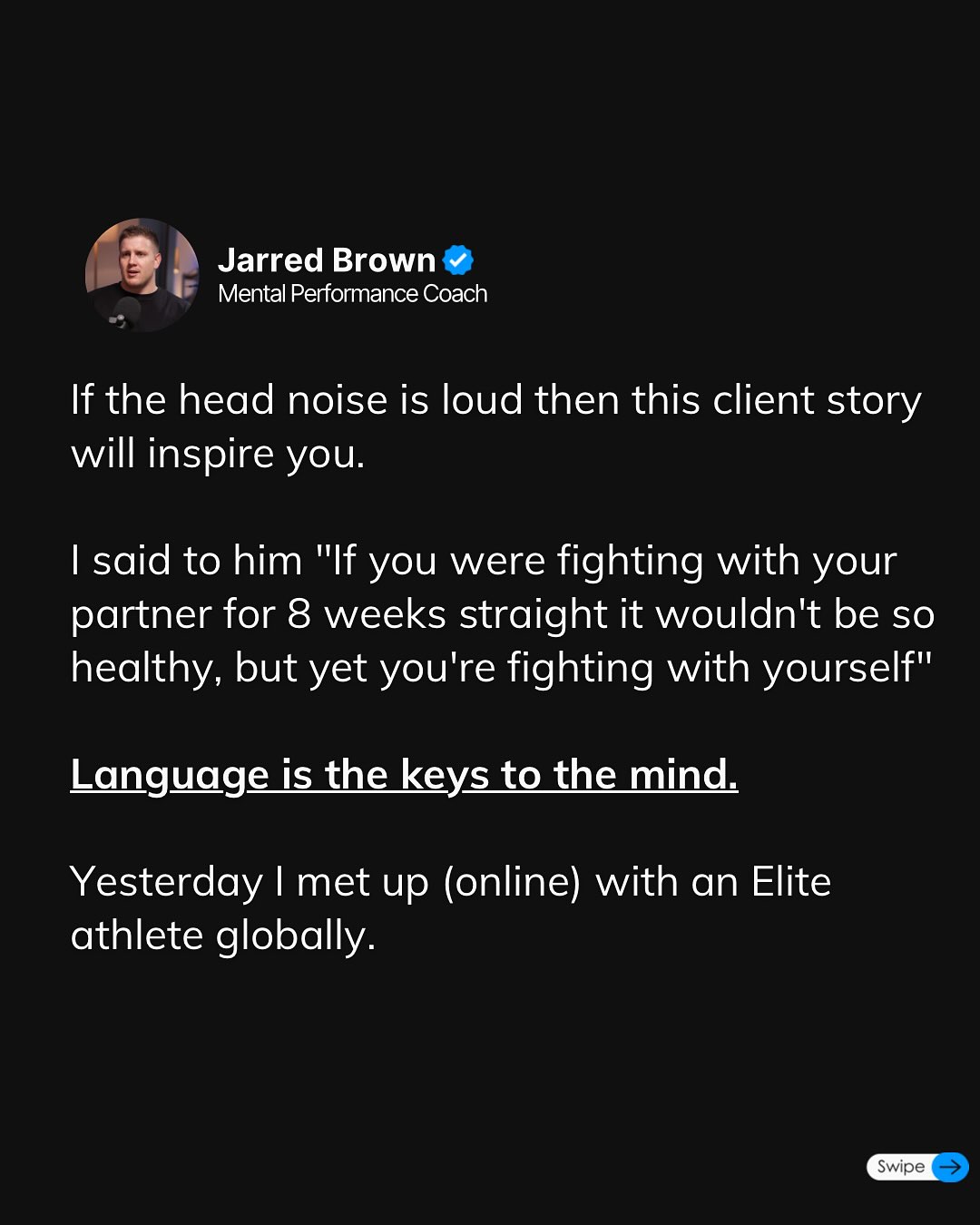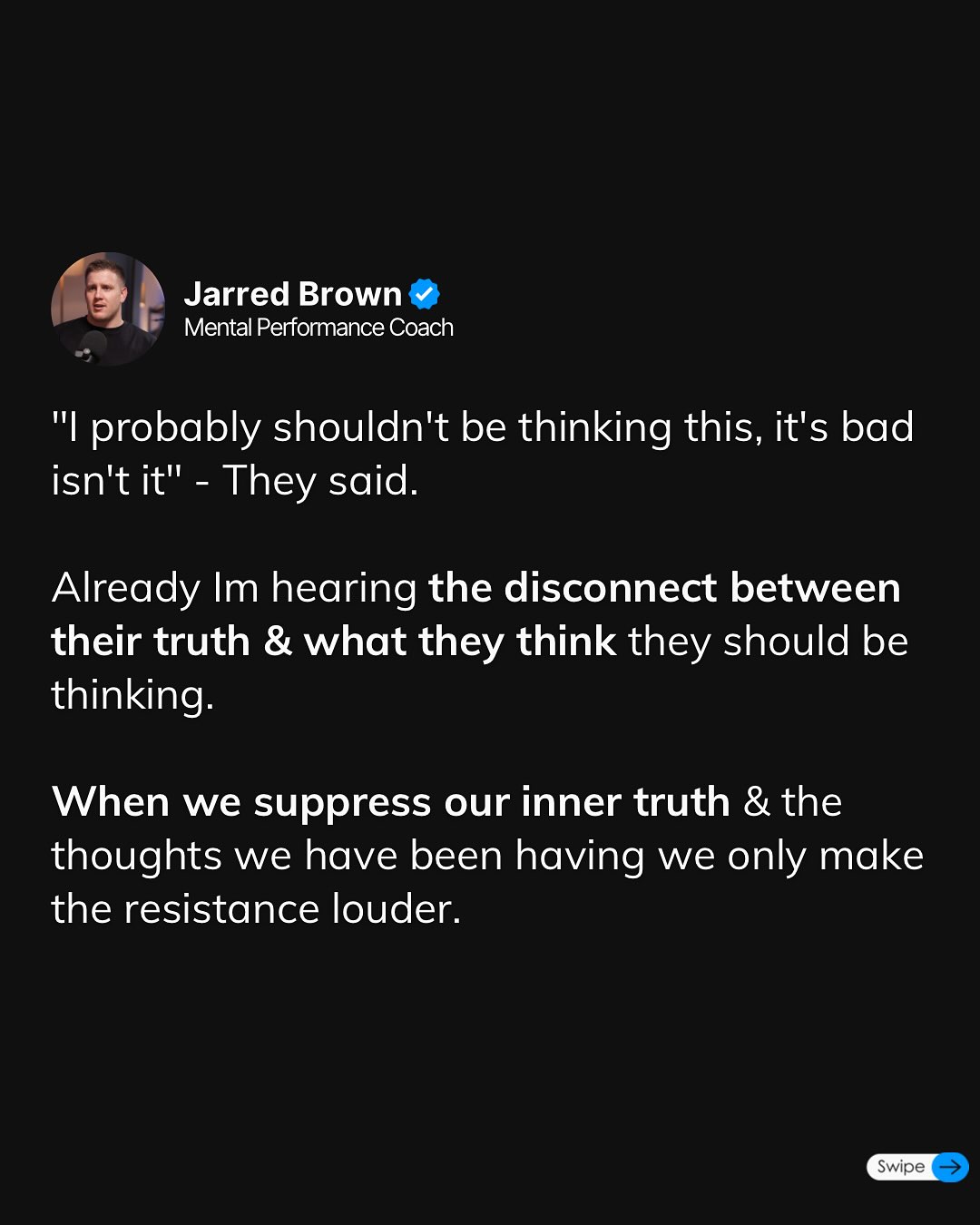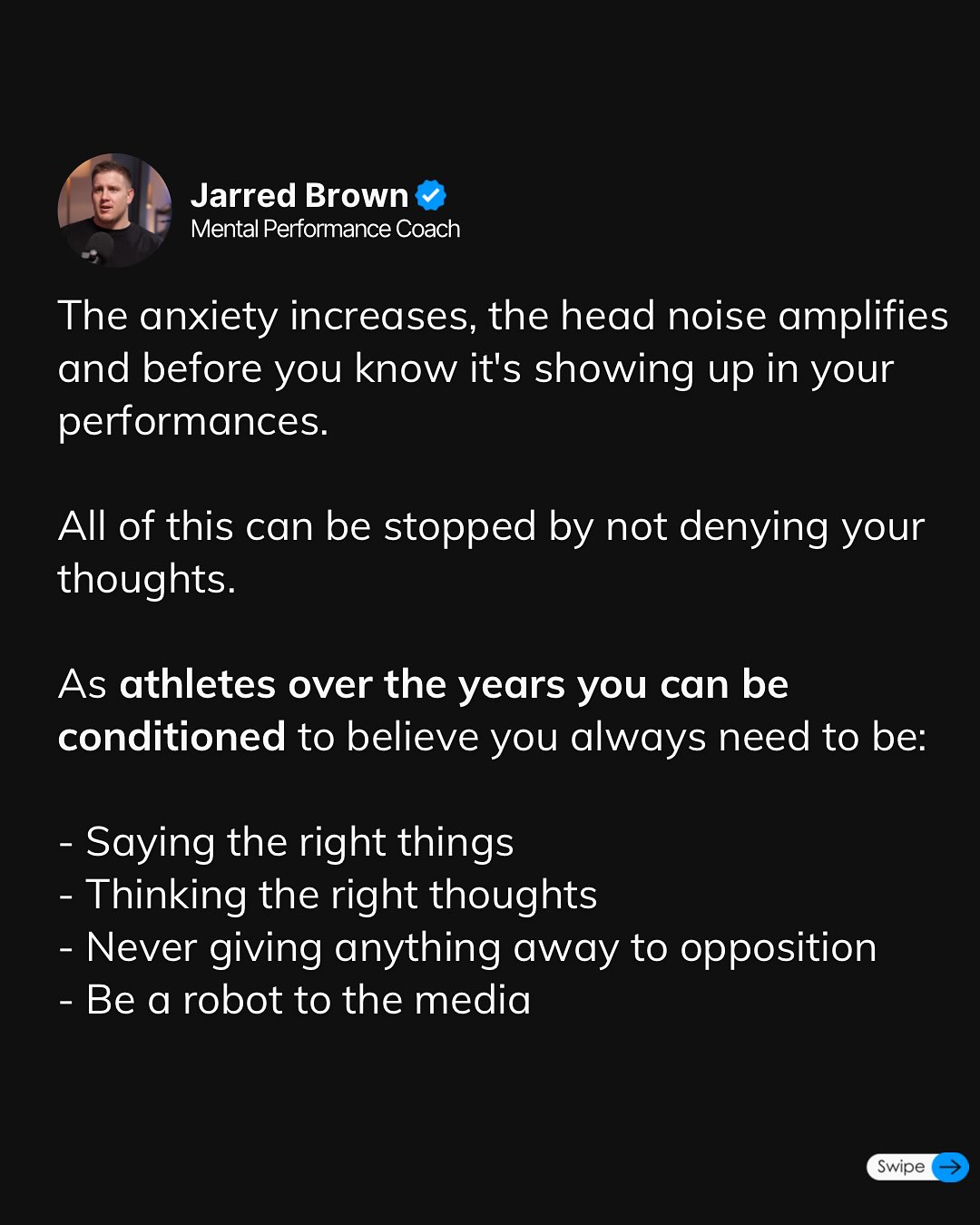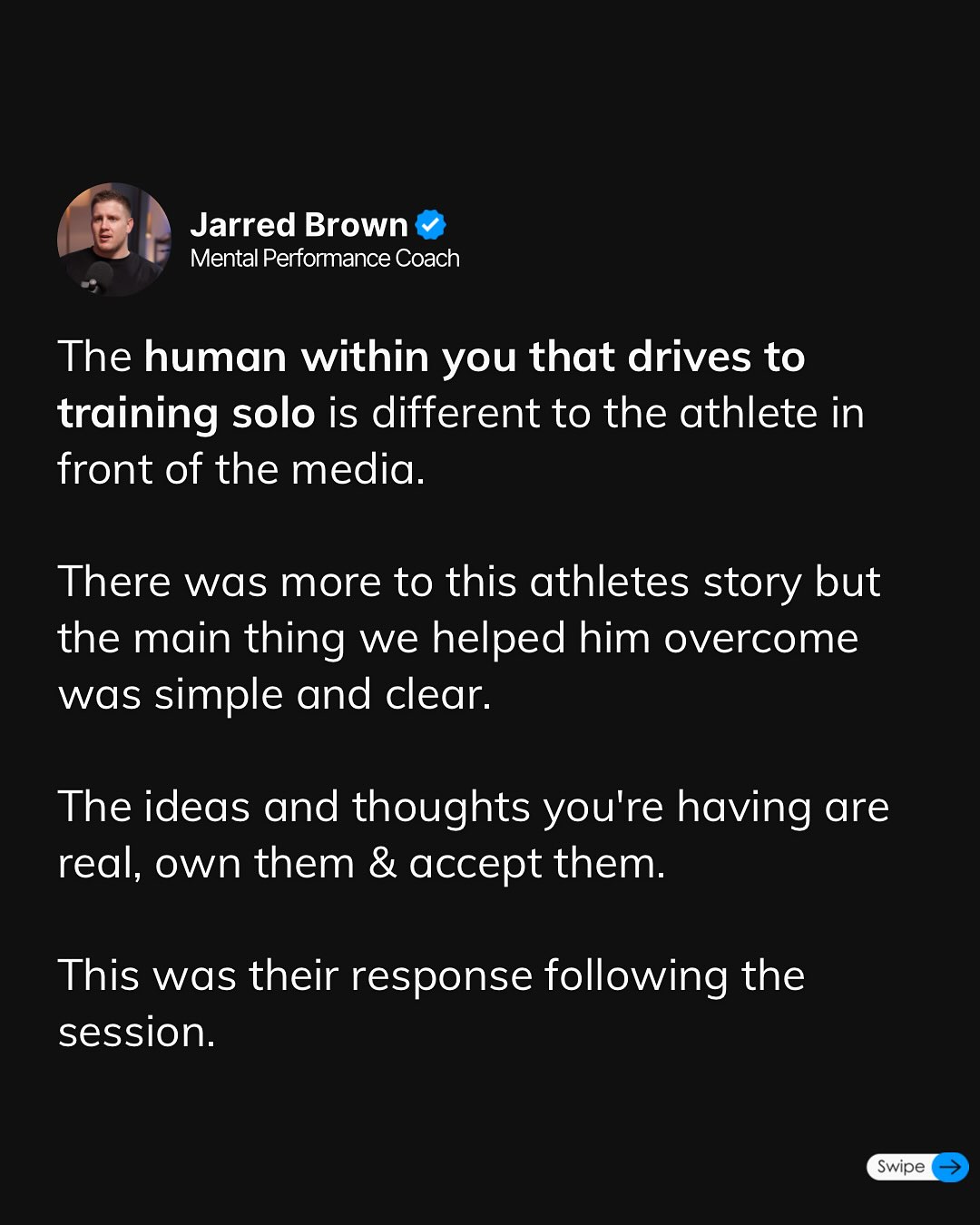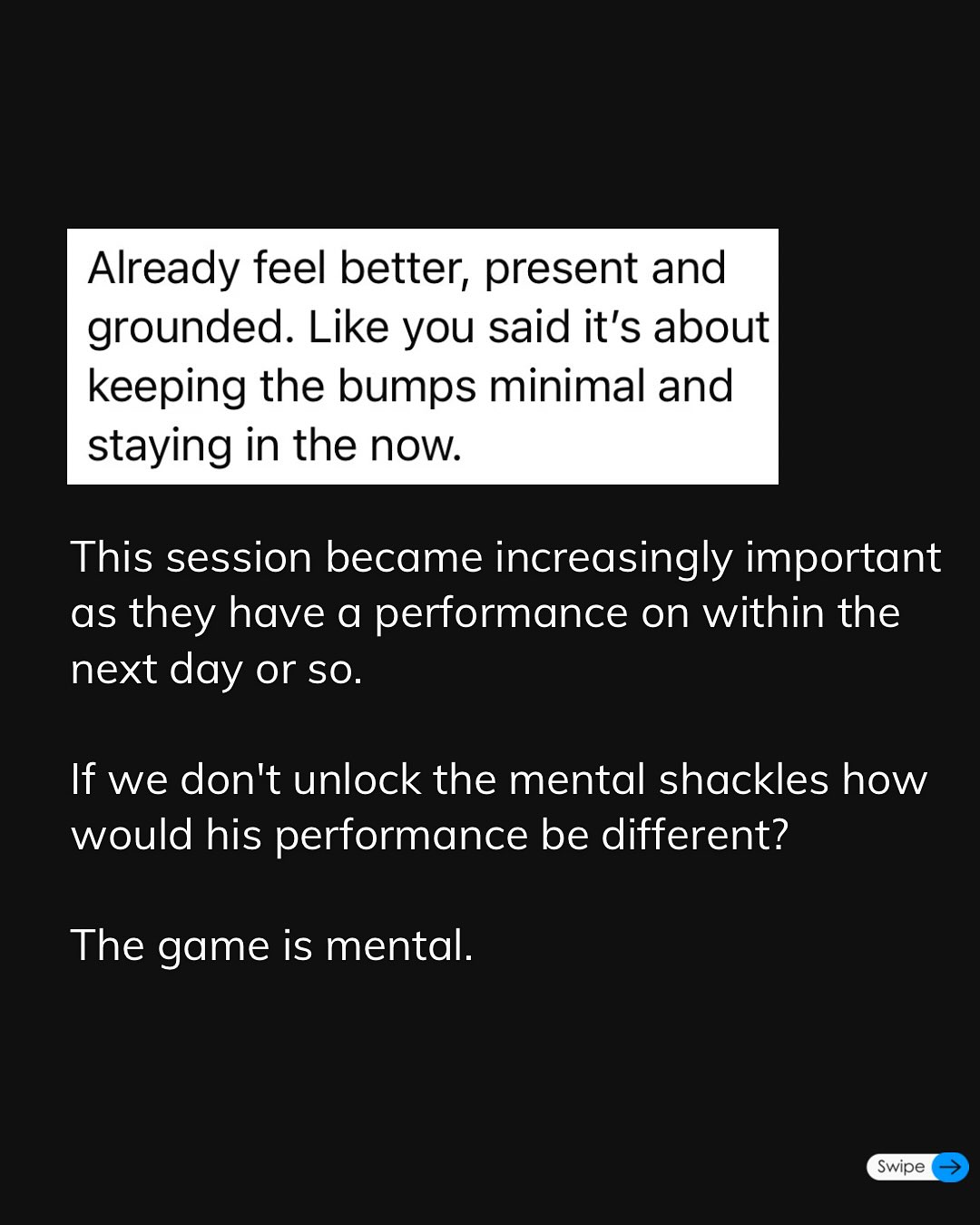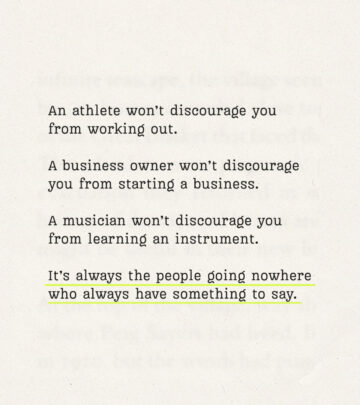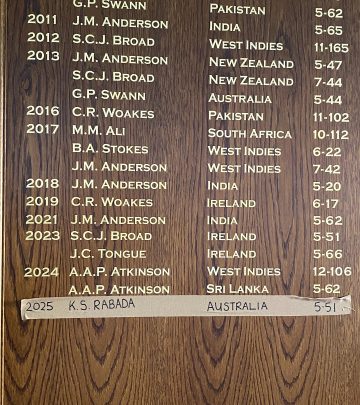Winning The Inner Mental Battle
In high-stakes session an elite athlete confronts mental noise to unlock peak performance!
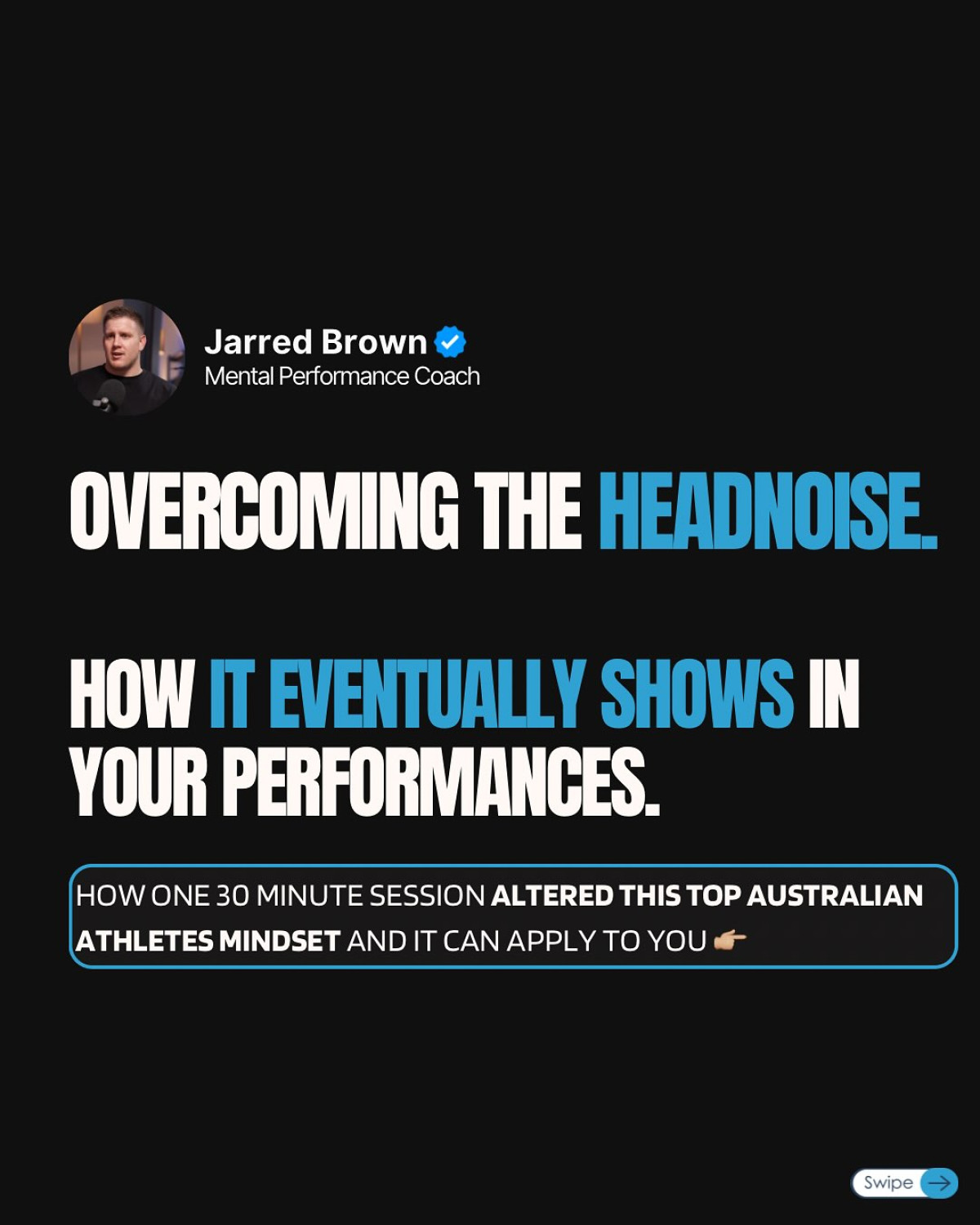
Image: Instagram
Elite performance isn’t just about physical training; it’s about winning that inner mental battle. In a recent online session, renowned mental skills coach Jarred Brown shared an intimate conversation with an elite athlete who was struggling with the relentless inner noise that often derails performance. Brown’s frank discussion, captured on social media, sheds light on the internal conflicts athletes grapple with every day.
Recognizing The Inner Struggle
When Brown sat down (virtually) with the athlete, a candid admission set the tone: “I probably shouldn’t be thinking this, it’s bad isn’t it?” This simple yet profound statement underscored the dichotomy that exists in many athletes – the pressure to always display the perfect mindset to the public versus the reality of battling inner doubts. Brown explained, “If you were fighting with your partner for 8 weeks straight it wouldn’t be so healthy, but yet you’re fighting with yourself.” His metaphor resonates with athletes conditioned to suppress emotions and maintain a robotic composure in front of the media.
This powerful dialogue highlights that performance is not just physical execution but also the art and science of managing internal dialogue. The head noise—those incessant thoughts that amplify anxiety—can be as destructive as any external challenge. Brown’s approach is all about facing that inner conflict head on, acknowledging every fleeting thought, and ultimately using that self-awareness as a springboard for improved performance.
The Game Is Mental
Central to Brown’s message was the idea that language is the key to the mind. He urged his client to stop denying his personal truth. By suppressing genuine emotions and internal narratives, athletes inadvertently magnify the internal conflict, which then manifests during training and competition. Brown noted, “When we suppress our inner truth & the thoughts we have been having we only make the resistance louder.” Such mental clutter, if left unaddressed, undermines an athlete’s ability to perform at their best.
Brown’s session delved into the delicate balance between the public image of an athlete and their private, often turbulent, inner world. The human behind the uniform, who trains in isolation and battles personal demons, is distinct from the media-ready persona. It is essential, he argued, to identify the mental shackles that hold athletes back and to work on dismantling them before they have a chance to impact performance on game day.
Strategies To Quiet The Noise
Throughout the discussion, Brown emphasized a fundamental principle: acceptance of all thoughts, not just the positive ones. Rather than battling every negative notion, he advised athletes to own their feelings without judgment. This method doesn’t involve giving in to pessimism, but rather embracing a full spectrum of thoughts so that the noise doesn’t overwhelm reality. Brown’s coaching advocates that merely acknowledging these thoughts—and understanding their roots—is the first step toward unlocking an athlete’s true potential.
In his own words, the athlete’s response during the session was simple and clear: the ideas and thoughts he was harboring were real and needed to be accepted. This revelation came just in time, with a critical performance looming the next day. The insight was stark: unless you remove these mental shackles, your performance will be shadowed by hesitation and anxiety.
The Path To Peak Performance
Jarred Brown’s candid counsel reinforces a growing body of evidence supporting mental training as a critical component of athletic success. Over the years, athletes have been conditioned to focus solely on the physical—perfecting technique, endurance, and strength. Yet, as Brown’s session illustrates, another arena demands attention: the realm of internal dialogue where self-criticism, fear, and suppressed emotion reside.
This session is not just a wake-up call for the athlete involved; it’s a broader invitation for all elite performers to expand their mental toolkit. Techniques such as mindfulness, deliberate self-reflection, and structured acceptance of all emotions can bridge the gap between raw talent and consistent high-level performance. Brown’s work aligns with other expert voices in sports psychology who advocate for a holistic approach to training.
By transforming the way athletes interact with their internal thoughts, coaches like Brown are paving the way for a paradigm shift in sports performance. The inner battle, once seen as a weakness, is gradually being reframed as an opportunity for growth, adaptability, and ultimately, victory on the field.
The power of Brown’s session lies in its simplicity and authenticity. Instead of insisting on an artificial state of perpetual positivity, he recognizes that true strength comes from embracing the full human experience – the good, the bad, and everything in between. His message is clear: own your thoughts, clear the emotional clutter, and let your genuine self drive you to new heights.
In a world where the physical and mental are inextricably linked, it’s evident that winning the inner battle is just as crucial as winning on the field. As this athlete discovered, the journey to peak performance begins in the mind, where clarity, acceptance, and resilience light the path forward.
Read full bio of Manjari Uppal


